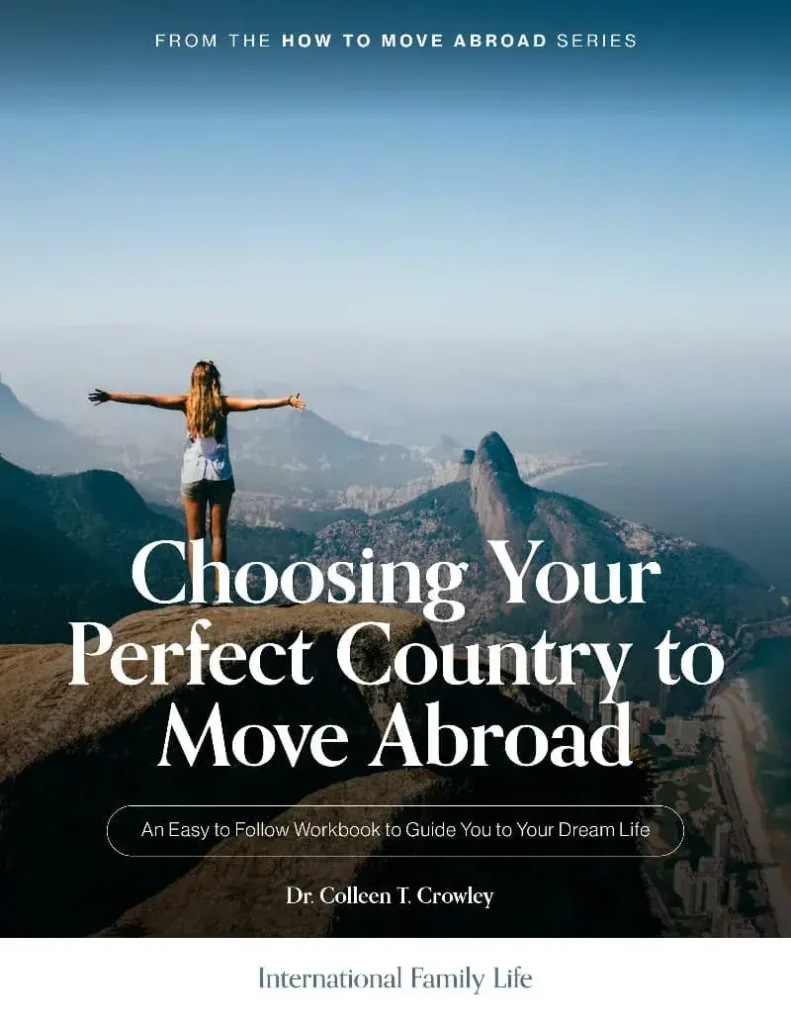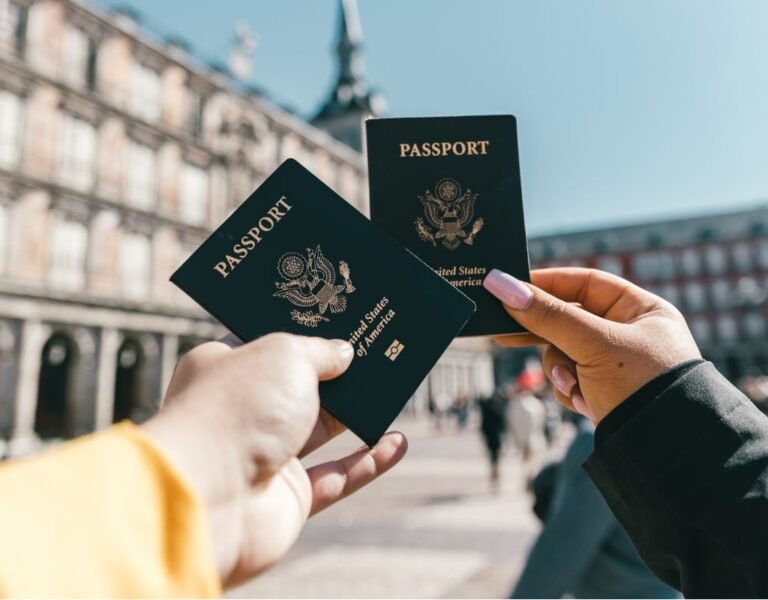How to get a Visa in your dream destination
|
Determining your ability to meet the visa and residency requirements in a particular country in order to live long-term or obtain residency is the first and most critical threshold question you need to answer before moving abroad.
While many countries have a range of options available for individuals hoping to acquire a long- term visa, there may be certain countries that have requirements that prove unattainable given your particular circumstances.
For example, there may be financial or bureaucratic requirements you are unable to meet in particular countries, making it difficult or even impossible to move to that particular location long-term.
There is a vast selection of remarkable countries around the world that offer a clear and attainable path forward for a wide variety of people hoping to obtain a visa. You simply need to find the one that works best for you, given your circumstances.
In fact, in some cases the process may reveal more attractive and easier paths forward to obtain your visa and reveal locations or countries you had not previously considered.
Some people are after the easiest and fastest visa to obtain, while others are more focused on the best country for their move abroad and less concerned about how fast or easy it is to get a visa.
Either way, doing research up front about the visa options and requirements in certain countries can prove to be educational and informative.

Example…
Perhaps you have always dreamed of buying a home and permanently relocating to Spain and basking in the Spanish sun year-round. But after doing some research you learn that you need to invest $500,000 USD in order to obtain the Golden Visa, which is not possible given your financial situation.
So, instead you learn that Costa Rica allows a path forward with an investment-based visa for far less than what is required in Spain. You end up pivoting and moving to this tropical oasis of a country instead, with much more ease and less financial stress.
Or perhaps, after doing some research, you realize you can get a visa in a dream country as a student or entrepreneur, which allows you to pursue that degree or business idea you have always dreamt about.
We encourage you to stay open minded and see what you uncover through the process.
A LOOK AT THE COMMON TYPES OF VISAS…
When moving abroad, visas come in many shapes and sizes. Here are the most common types of visas you’ll encounter:
1. Tourist Visa
- Short-term stay (usually 30-90 days).
- Perfect for vacations or scouting out a country before making a move.
- Some countries offer visa-free entry for certain nationalities.
2. Work Visa
- Required if you’re employed by a company in a foreign country.
- Often needs sponsorship from an employer.
- Some countries have specific visas for high-demand jobs.
3. Digital Nomad Visa
- For remote workers and freelancers.
- Allows you to legally live in a country while working online.
- Countries like Portugal, Spain, and Thailand offer these.
4. Student Visa
- For attending school or university abroad.
- Often allows part-time work.
- May lead to residency or work opportunities after graduation.
5. Retirement Visa
- For retirees with a steady pension or savings.
- Common in Thailand, Portugal, Mexico, and Panama.
- Some countries offer permanent residency after a few years.
6. Family/Spouse Visa
- For those joining a spouse or family member in another country.
- Often leads to permanent residency.
7. Investment or Business Visa
- Requires investing in a local business or real estate.
- Panama, Portugal, and Malta have popular investor visa programs.
8. Permanent Residency & Citizenship by Naturalization
- Some visas (like work, family, or retirement visas) can lead to permanent residency.
- After several years, you may qualify for citizenship.
Each country has different rules, but these visas cover most pathways to living abroad. Which one fits your travel goals best?
A NOTE ABOUT RESIDENCY AND CITIZENSHIP…

When moving abroad, visas come in many shapes and sizes. Here are the most common types of visas you’ll encounter:
1. Tourist Visa
- Short-term stay (usually 30-90 days).
- Perfect for vacations or scouting out a country before making a move.
- Some countries offer visa-free entry for certain nationalities.
2. Work Visa
- Required if you’re employed by a company in a foreign country.
- Often needs sponsorship from an employer.
- Some countries have specific visas for high-demand jobs.
3. Digital Nomad Visa
- For remote workers and freelancers.
- Allows you to legally live in a country while working online.
- Countries like Portugal, Spain, and Thailand offer these.
4. Student Visa
- For attending school or university abroad.
- Often allows part-time work.
- May lead to residency or work opportunities after graduation.
5. Retirement Visa
- For retirees with a steady pension or savings.
- Common in Thailand, Portugal, Mexico, and Panama.
- Some countries offer permanent residency after a few years.
6. Family/Spouse Visa
- For those joining a spouse or family member in another country.
- Often leads to permanent residency.
7. Investment or Business Visa
- Requires investing in a local business or real estate.
- Panama, Portugal, and Malta have popular investor visa programs.
8. Permanent Residency & Citizenship by Naturalization
- Some visas (like work, family, or retirement visas) can lead to permanent residency.
- After several years, you may qualify for citizenship.
Each country has different rules, but these visas cover most pathways to living abroad. Which one fits your travel goals best?
The Easiest Visas to Get Around the World
Dreaming of packing your bags and living abroad? Some countries make it surprisingly easy to stay long-term! Whether you’re a digital nomad, a retiree, or just looking for a new adventure, here are some of the easiest visas to get around the world.
1. Mexico – Temporary Resident Visa
If you love tacos, beaches, and vibrant culture, Mexico’s Temporary Resident Visa is a great option. You can stay for up to four years, and the income requirement is fairly low compared to other countries. Plus, many nationalities can stay for 180 days visa-free, giving you time to decide if Mexico is your vibe! Check out our section on Expats in Mexico for more information and details…
2. Portugal – D7 Visa (Passive Income Visa)
Portugal is perfect for remote workers, retirees, or anyone with passive income. The D7 Visa requires proof of steady income (like from a remote job or investments), and after five years, you can apply for citizenship!
3. Thailand – Long-Term Tourist Visa (LTV)
Thailand’s visa options change often, but the Long-Term Tourist Visa (or the Education Visa if you want to learn Thai!) makes it easy to stay for months or even years. Digital nomads often use the Thailand Elite Visa, but it comes with a hefty price tag.
4. Georgia – Digital Nomad Visa (“Remotely from Georgia”)
This underrated gem in the Caucasus offers a free one-year visa to remote workers. There’s no strict income requirement, and the cost of living is super affordable. Plus, Tbilisi’s café culture is a dream for digital nomads.
5. Panama – Friendly Nations Visa
Panama loves welcoming expats, especially if you’re from one of the 50+ “friendly nations.” With this visa, you can get residency permanently with just a small financial investment or a local job. Bonus: It’s a tax-friendly country too! Read more about the Visa process in Panama here…
6. Indonesia – Bali’s Second Home Visa
Bali’s new Second Home Visa allows a 5- to 10-year stay for those with savings or an income source. If you’re a remote worker, the B211A Visa also allows a 6-month stay. Sunsets, smoothie bowls, and co-working spaces—yes, please! This is also a great destination for families looking to relocate with a huge expat population and a welcoming culture.
STEPS TO TAKE…
- Start with the three countries that top your list in terms of moving abroad. This list can be based on prior travel, family experience, or what you’ve read and think you know. It’s just a starting point! Check out these posts for some ideas on easy places to move abroad and how to apply for a visa from the United States.
- Visit the government website or consult with the government agency that sets the visa and residency requirements. They will list the types of visas available and what is required to obtain those visas. You will determine what visas are a possibility for you, based on your circumstances. In some cases you may qualify for several.
- Visit blogs to do additional research and hear first-hand accounts of where and how people obtained their visas in these locations. These experiences can be helpful context but keep in mind that the requirements may have changed.
- Check out Facebook or Reddit expat groups particular in the country you are considering. These groups share valuable insights, tips, and tricks from individuals who are currently or have historically navigated the move abroad. You can ask questions and seek support from others who have gone through the process.
- Consult (for free!) with an immigration attorney in your country of interest. Many visa attorneys will do a 15 minute consultation for free to discuss the particulars of your situation. Google or ask on Facebook forums about reputable attorneys and reach out. In just a short conversation, you are likely to receive solid and up-to-date legal advice about what would work best for you and your circumstances.
Some of the more popular countries to move abroad…
If you don’t have any countries in mind that you would consider moving to here’s a list of popular destinations based on factors such as quality of life, cost of living, job opportunities, healthcare, safety, climate, and cultural experiences. These countries rank high for American’s when starting a new life abroad. They also have a fairly easy path forward to obtain a visa.
But remember just because a country tops a list as an ideal place to live does not mean it will work for you or your family. So be sure to look at all the criteria that is helpful in determining what country would be be the perfect fit based on your unique goals and lifestyle.
- Canada (especially cities like Toronto, Vancouver, and Montreal)
- Australia (Sydney, Melbourne, Brisbane)
- United Kingdom (London, Edinburgh, Manchester)
- New Zealand (Auckland, Wellington, Christchurch)
- Germany (Berlin, Munich, Frankfurt)
- Japan (Tokyo, Osaka, Kyoto)
- Spain (Barcelona, Madrid, Valencia)
- Portugal (Lisbon, Porto, Faro)
- Italy (Rome, Milan, Florence)
- France (Paris, Lyon, Nice)
- Switzerland (Zurich, Geneva, Bern)
- Netherlands (Amsterdam, Rotterdam, Utrecht)
- Sweden (Stockholm, Gothenburg, Malmö)
- Denmark (Copenhagen, Aarhus, Odense)
- Ireland (Dublin, Cork, Galway)
- Costa Rica (San José, Tamarindo, Arenal)
- Mexico (Mexico City, Playa del Carmen, Guadalajara)
- Singapore (Holland Village, Tanglin)
- United Arab Emirates (Dubai, Abu Dhabi)
- South Korea (Seoul, Busan, Incheon)
- Panama (Coronado, Panama City)
- Malaysia (Penang, Kuala Lumpur, Langkawi)
Final Words…
Now that you have done some research on different countries and the visas available in those destinations you can decide which location, application process and type of visa will work best for you going forward.
Once you have this decided you have crossed the biggest threshold question of where you can move abroad and start planning your new life in your new destination!
We can’t wait to hear about your adventures!
Looking for information on international health care? Check out this post for helpful information.

Get Started Today!
How to Move Abroad
A Workbook to help you make the right choices
Use our easy to follow roadmap to help you find the perfect location to start your new life.
Hello and Welcome!

We started our family travel blog in hopes of supporting other families move abroad and travel the world. Through straightforward, sincere and supportive information we hope to provide a reliable guide for those moving overseas with a family and traveling the globe.





